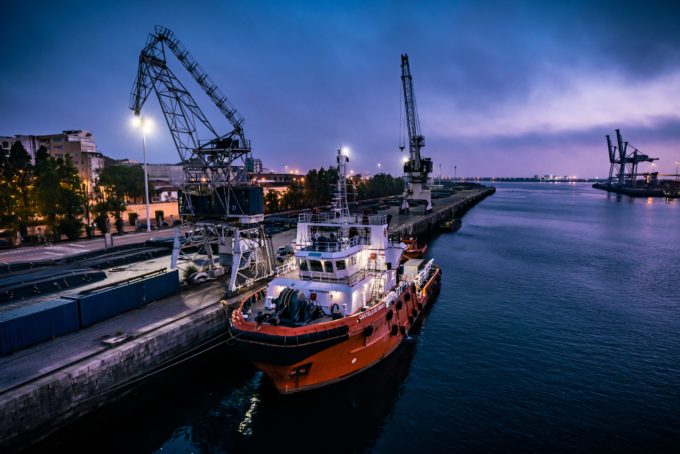The chief executive of one of the world’s leading power technology and services provider for the maritime and energy industries has called on governments, companies and other stakeholders to speed up decarbonization in these two sectors that account for roughly a third of the world’s carbon emissions.
Håkan Agnevall, President and CEO of Wärtsilä, the global group headquartered in Finland, told IMD President Jean-François Manzoni that the maritime and energy industries are facing the biggest transformation in more than three decades as asset owners come under regulatory and market pressure to decarbonize for the future.
“The marine and energy sectors will, in the coming 10 years, go through a revolution. It’s all centered around decarbonization … There’s going to be more things happening in marine and energy in the coming decade, compared to the previous 30 years,” he said in the latest edition of IMD’s CEO Dialogue series, which showcases insights from influential business leaders in diverse industries.
The industrialist added: “We are moving too slowly on the global decarbonization journey, and we need to accelerate. Energy production accounts for 30% and shipping for 2% of global carbon emissions. Both sectors need to decarbonize at speed to be able to achieve the Paris agreements emission targets”.
To put those figures into further context, 90% of the world’s transport takes place at sea, but only represents 10% of the transport industry’s total carbon emissions, meaning that maritime has the lowest carbon intensity of any individual transport sector.
Because most of the world’s ocean-going ships travel vast lengths between ports, Agnevall said battery power is not a feasible solution. As an alternative, shipping companies such as Maersk and CMA CGM are considering carbon-neutral and zero carbon fuels made using renewable energy.
In the energy sector, renewables will grow exponentially to decarbonize power systems across the globe. As the share of intermittent renewables grows, balancing power will also grow to stabilize the power system. Balancing power is produced by engine power plants and battery storage as complementary technologies. Here hydrogen will be an important potential fuel for the future.
The transition to greener fuels presents new business opportunities for Wärtsilä, which is developing engines that run on alternatives to fossil fuels.
However, there is little consensus on the best way forward, with different companies choosing different fuels — including methanol, ammonia and hydrogen — to power their future vessels and power plants.
Complex challenge for policymakers
As governments weigh the scope and form of regulation that could reshape global trade flows and energy generation, the Wärtsilä boss warned policymakers that there is no silver bullet for decarbonization. He also expects some international fragmentation.
“Green is not black or white,” he said. “There is no single, simple solution. And we recognize that as well. So we clearly need to look at different alternatives. And when it comes to the energy systems and fuels of the future, it will not be one-size-fits-all.”
Agnevall predicted that retrofitting will be an important component in the sectors’ green transition, given that vessels and power plants have a lifespan of more than 20 years. Agnevall (IMD MBA 2000), insisted that fossil fuels would remain in the industry for many years to come, too.
“The avenue going forward is to blend in different type[s] of green fuels … it will not be a digital shift,” he said. “So therefore you need flexible engines, flexible drive lines that you can convert. Nobody wants to be stuck with stranded assets. And this is where flexibility and energy efficiency will be so important.”
The Swedish executive acknowledged that “these are significant capital investments. And you really need to futureproof them, make them convertible, upgradable so you can follow the transition that will come.”
The pressure to decarbonize shipping is coming from the global regulator IMO and from international companies, including Amazon and Unilever, which have pledged to use only zero-emission ships to transport their goods by 2040.
Managing the incentives for going green
Agnevall noted that green fuels, such as methanol and ammonia, are expected to be two to four times more expensive than traditional bunker fuels — a fact which has led to proposals for market-based measures, such as carbon levies, to make alternative fuels more cost-competitive. But the technology boss believes the cost impact on consumer durables will be modest because of economies of scale in container transportation.
“And I think both you and I would be willing to pay a couple of extra cents if we can … contribute to the decarbonization,” he told Manzoni, the Nestlé Professor at his alma mater. “On the regulatory side, we need to create a level playing field with carbon tax systems, with other regulatory measures,” he said.
YouTube



 Podcast available
Podcast available